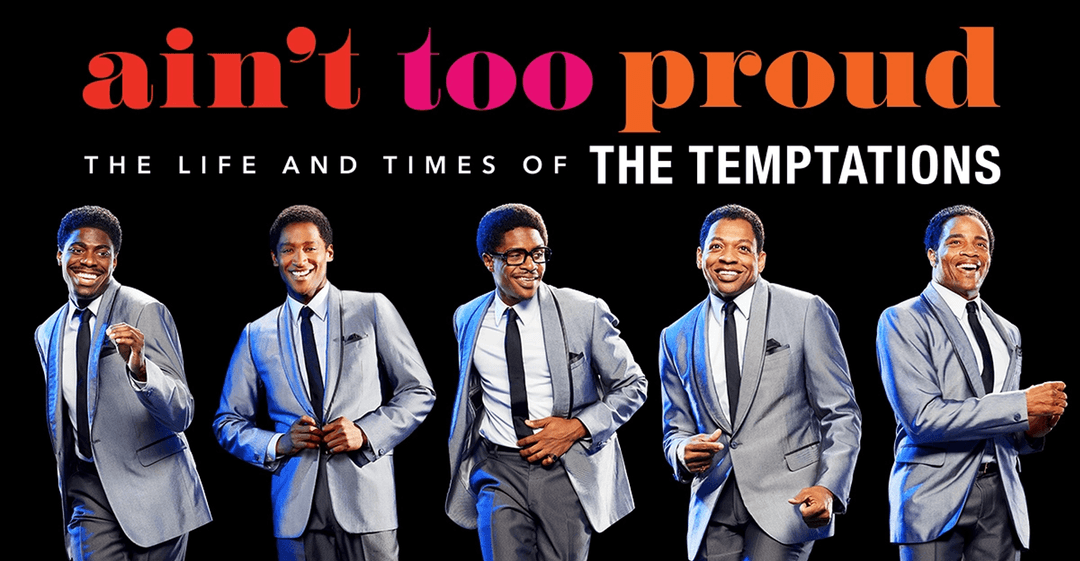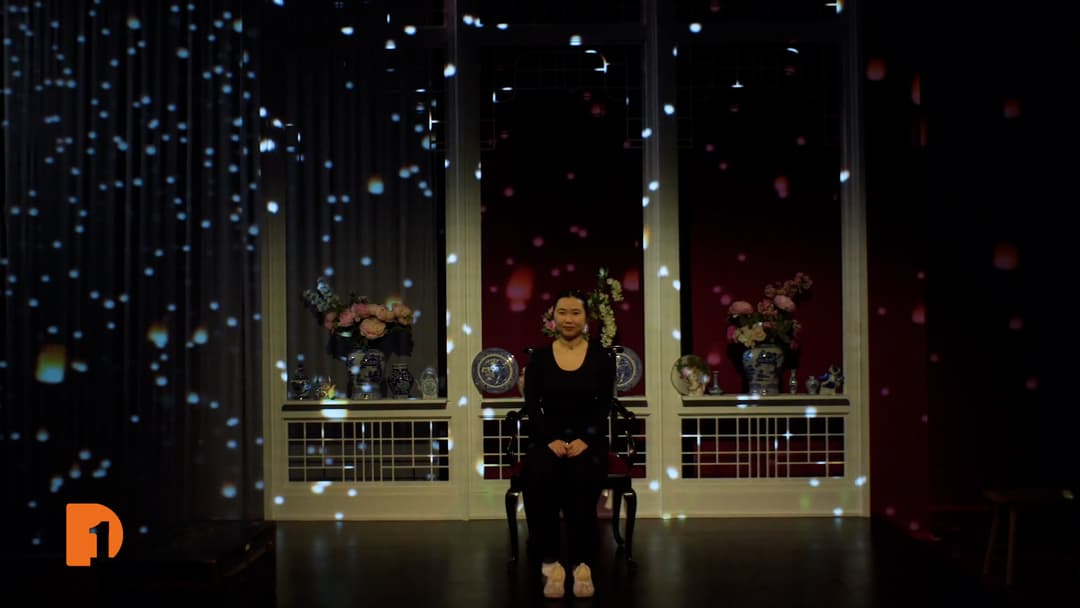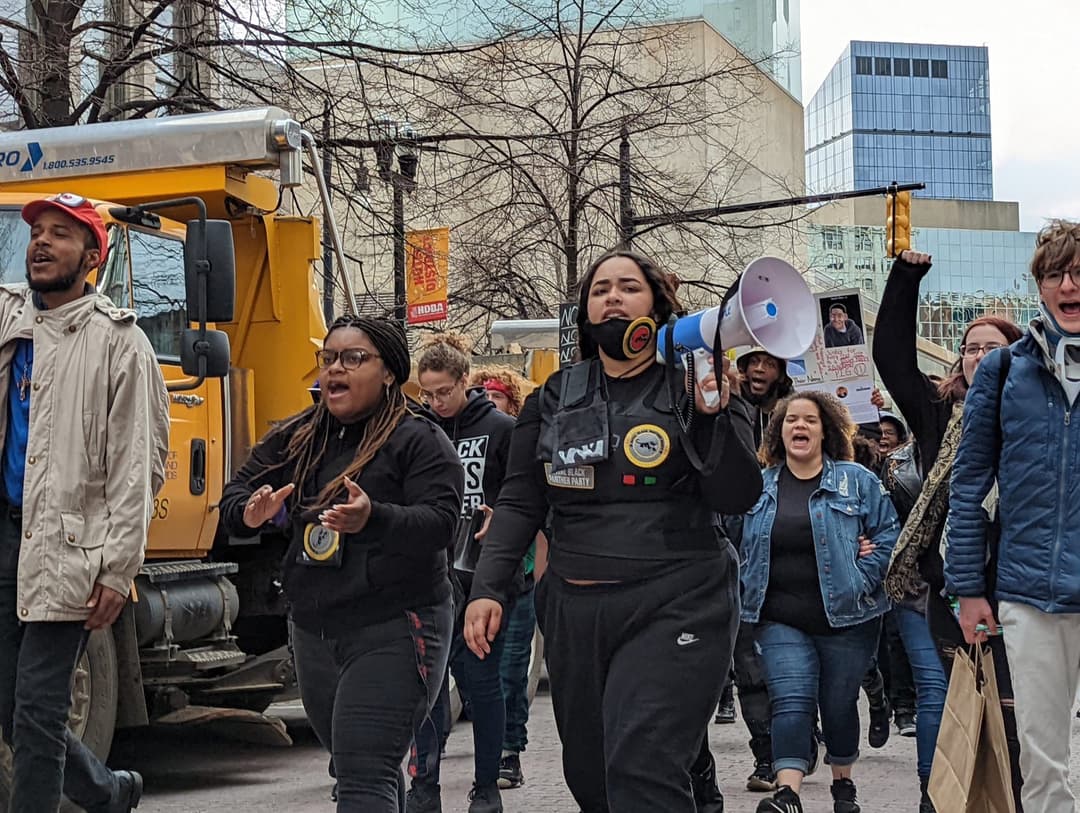Playwright Dominique Morisseau brings ‘Ain’t Too Proud’ musical to Detroit where it all began
Aug 24, 2022
“Ain’t Too Proud: The Life and Times of The Temptations,” the electrifying musical written by playwright Dominique Morisseau about legendary Motown group The Temptations, has taken center stage in Detroit, the city where it all began for the five singers. Dominique Morisseau, a Detroit native, has drawn inspiration from her hometown in “Ain’t Too Proud,” as well as her musical “Detroit ’67.”
RELATED: Detroit Public Theatre Performs ‘Detroit ’67’ Production Based on Detroit 1967 Riots
The show tells the story of Motown’s premier male group as seen through the eyes of its only surviving original member, Otis Williams. The musical won a Tony Award for best choreography and received several other nominations, including two nods to Morisseau for her writing.
“American Black Journal” host Stephen Henderson sits down with Morisseau to talk about the success of the musical, its time on Broadway cut short by COVID-19, and the significance of bringing the show to Detroit. They also discuss the challenges and successes of African American-focused musicals and plays.
Full Transcript:
Stephen Henderson, Host, American Black Journal: About this show. Last time we talked, I think it was headed to New York.
Dominique Morisseau, Playwright, “Ain’t Too Proud”: Yeah.
Stephen Henderson: But it’s a bigger deal, I think, for something like this, especially to play in Detroit because we own this, right? This is our story. And you can’t get away with anything.
Dominique Morisseau: No, absolutely not.
Stephen Henderson: So talk about “Ain’t Too Proud.” Yeah.
Dominique Morisseau: I just I’m really happy to have “Ain’t Too Proud” the Life and Times of The Temptations here in Detroit at the Detroit Opera House. It’s been a long time coming. It’s our Broadway tour. We are supposed to be… Detroit was supposed to be one of the first stops when we were originally going to do the tour in 2020, but we all know what happened in 2020.
And so that delay has shifted things around. And so it feels like it’s just been a long time coming to get here to Detroit to do this show. And we were on Broadway, and COVID shut the show down on Broadway. And so, now that we’re doing this Broadway tour, we’ve been to all these cities, it just feels like a new life to be here. And it’s more important.
I mean, being in Detroit, you can just ask the cast, you could see it on their faces when they’re performing. It just feels… This feels more important than Broadway. This is like the most important performance you can be doing, is the ones you’re doing here in Detroit right now.
Stephen Henderson: Yeah. Well, and the story, of course, of The Temptations is in many ways, the story of Detroit, of course, it’s the story of Motown as well. But it is a Detroit story in the sense of that perseverance, that focus on who you are and where it takes you in life, and the celebration of all of the things that make us Detroiters. I mean, The Temptations are Detroit in such a special way.
Dominique Morisseau: That’s right. And I make sure and I promise in the show that I’m not going to let you forget that this is The Temptations are a homegrown Detroit group. That this group was born and raised here in the city that grew out of the rest of their contemporaries, and I tried to make sure that that stamp is really clear in this show.
Stephen Henderson: Yeah, talk about this being on Broadway as well. I mean, that was a very big deal when that happened. How did that audience receive this story?
Dominique Morisseau: Yeah, it was really special. I mean, they went bananas for it on Broadway and honestly, if not for Omicron kind of ravaged all of Broadway, really, and a lot of shows closed prematurely just too many. And a lot of them were the Black shows, which is like the heartbreak. But there was a moment in which “Ain’t Too Proud” was on 45th, well the theater is on 45th and 46th Street. The front of it is on 45th. And the back of it is on 46th Street. And then my show, Skeleton Crew, was on 47th Street.
So for a very short period of time, like a month, I had two Broadway shows taking up three blocks of New York City Broadway real estate. That was kind of exciting. I was like, Wow, Detroit is taking over New York right now. And so it’s just been really amazing because it was so well-received and it just really it kind of doesn’t make sense that we’re not still on Broadway except for, just everything. Broadway almost came back. I won’t say too soon, but too fast and without enough foresight of how to maintain if a surge happens.
And so but the show was so people loved it. They were, it was one of those special ones. And you can also tell, I guess it’s kind of rare for Black musical theater artists to be able to be their full selves on a Broadway stage. They’re used to having like cover or be told that they’re singing too, make too many runs, that they’re somehow their speech pathology, that they’re not speaking articulately enough for Broadway to be on a stage. And I’m like, No, you need to sound like your elders and your ancestors right now in this show.
Stephen Henderson: You need to sound like Detroit.
Dominique Morisseau: You need to sound like Detroit. You need to sound around the corner and up the block. And so I think it was kind of freeing for all of the artists who were participating in the show to be able to be their full selves. So when you watch it, you’re just blown away by all this Black talent that doesn’t normally get to be, do what they can do all the time.
Stephen Henderson: Yeah. I would be remissive if I didn’t mention that this play also won a Tony. For her choreography. Talk about that. I mean, that’s an incredible achievement.
Dominique Morisseau: Yeah, I mean, it is. I mean, it was nominated for 12 Tony Awards and we took the choreography, Tony. And I was like, if there was one Tony that we needed, besides obviously the book, which I feel like, that I feel like we got robbed on. Not just because it was me, but because I knew I felt very strongly. And I think other people did too, that that was the one that should have gotten it. But I was going to throw my shoe at somebody if we didn’t get that choreography, Tony.
I mean, you can’t, the choreography in the show is outstanding and you can’t even, like, you mean it’s The Temptations and then there’s also a touch of so many more groups that follow them. So what it like does is nod to the past and to the generations that came after them. Right? It’s a little bit of a new edition nod in there. There’s a little bit of other styles. And I think that, how could you not go crazy for that choreography?
That choreography Tony went to Sergio Trujillo who is our choreographer, and he got that alongside Edgar Godineaux who is an associate choreographer. I mean, there were a lot of gifted minds and talent that went into that choreography that was made stellar.
Stephen Henderson: Yeah. Well, and thinking and speaking about the celebration of Black art on Broadway, that nod for choreography. I mean, this is obviously a very Black show in every way. And the choreography reflects our culture in a way that other plays don’t do on Broadway.
Stephen Henderson: And for those reasons that you’re talking about, they always say you can’t be that much on Broadway here, and you did it. And you’re recognized with the best award that they have.
Dominique Morisseau: Yeah, yeah, yeah. Absolutely. I mean, it’s deserved. And then, and so many more things were deserved as well. And I think everybody who got nominated deserved their nomination. It was a fantastic production, and so I’m really proud. And this company that we have here in Detroit, some of them were like covers for us on Broadway. Some of them came from Broadway. But a lot of them did not. They just joined for the tour. And they are, they’re rivals. Trust me, I get nervous when I look at them.
I’m like, okay, are we like something to lose some quality? And I watch the show and I’m like, I’ve been here from the beginning. I’ve been with this show since we were like in the Bay Area just trying it out before we got to Broadway. Went to like three cities. I’ve seen a lot of rotations of this show, and you’re getting a stellar cast.
Stephen Henderson: Yeah, yeah.
Dominique Morisseau: You’re getting a stellar cast. This is a great production and a great group of people.
Stephen Henderson: The success that this had in New York, the success that you’ve had in New York, you feel like things are changing in terms of opportunity for African-American writers, African-American material that’s influenced by African-American culture.
Stephen Henderson: I mean, Broadway was so closed to us for so long, and now it seems there’s almost a flood of recognition in some ways that, hey, that wasn’t all right.
Dominique Morisseau: Well, coming off of 2022, this past season, ’21, ’22, really, I guess it was the end of 2021, but there were eight Black shows on Broadway, which is unprecedented. You’ll be lucky if you catch one or two at the same time, in like several years. But in one year, all of these Black shows together were on Broadway. And while that felt real, it was a milestone. And it gives you hope. But I always say, don’t make that optical. Don’t make that an optical illusion. We were also the first ones that brought back during the— we brought theater back from the pandemic.
So we were also the pandemic test dummies. You know what I mean? So it was like, well, it looks good. But also who shows all closed first? Whose shows didn’t get to stay up on Broadway because of the fraught time that we were having to do theater? And, so you can’t look at those Black shows and what happened to our shows on Broadway and then go, well, we tried and move on. You know what I mean? You have to be like, Oh, no, look how, look what you put us up against.
Stephen Henderson: Yeah.
Dominique Morisseau: And look how even still there was a hunger and a desire to see there’s work on Broadway. So imagine when we’re not in the thick of a plague that was like, more aggressive than the original plague, imagining what we could do, if not for those circumstances. And I think if those things are not taken into consideration, then you’re not really trying to change Broadway.
But, I think at that time there’s enough being called for and demanded, frankly, from theater artists to change not just Broadway, but theater across the country and make it better and more equitable. And so I believe in that change more than I believe in the optical illusions.
Stay Connected:
Subscribe to Detroit PBS YouTube Channel & Don’t miss American Black Journal on Tuesday at 7:30 p.m and Sunday at 9:30 a.m. on Detroit PBS, WTVS-Channel 56.
Catch the daily conversations on our website, Facebook, Twitter and Instagram @amblackjournal.
View Past Episodes >
Watch American Black Journal on Tuesday at 7:30 p.m. and Sunday at 9:30 a.m. on Detroit Public TV, WTVS-Channel 56.
Stay Connected
Subscribe to Detroit PBS YouTube Channel & Don’t miss American Black Journal on Tuesday at 7:30 p.m. and Sunday at 9:30 a.m. on Detroit PBS, WTVS-Channel 56.
Catch the daily conversations on our website, Facebook, Twitter, and Instagram @amblackjournal.
Related Posts
Leave a Reply
Your email address will not be published. Required fields are marked*



























